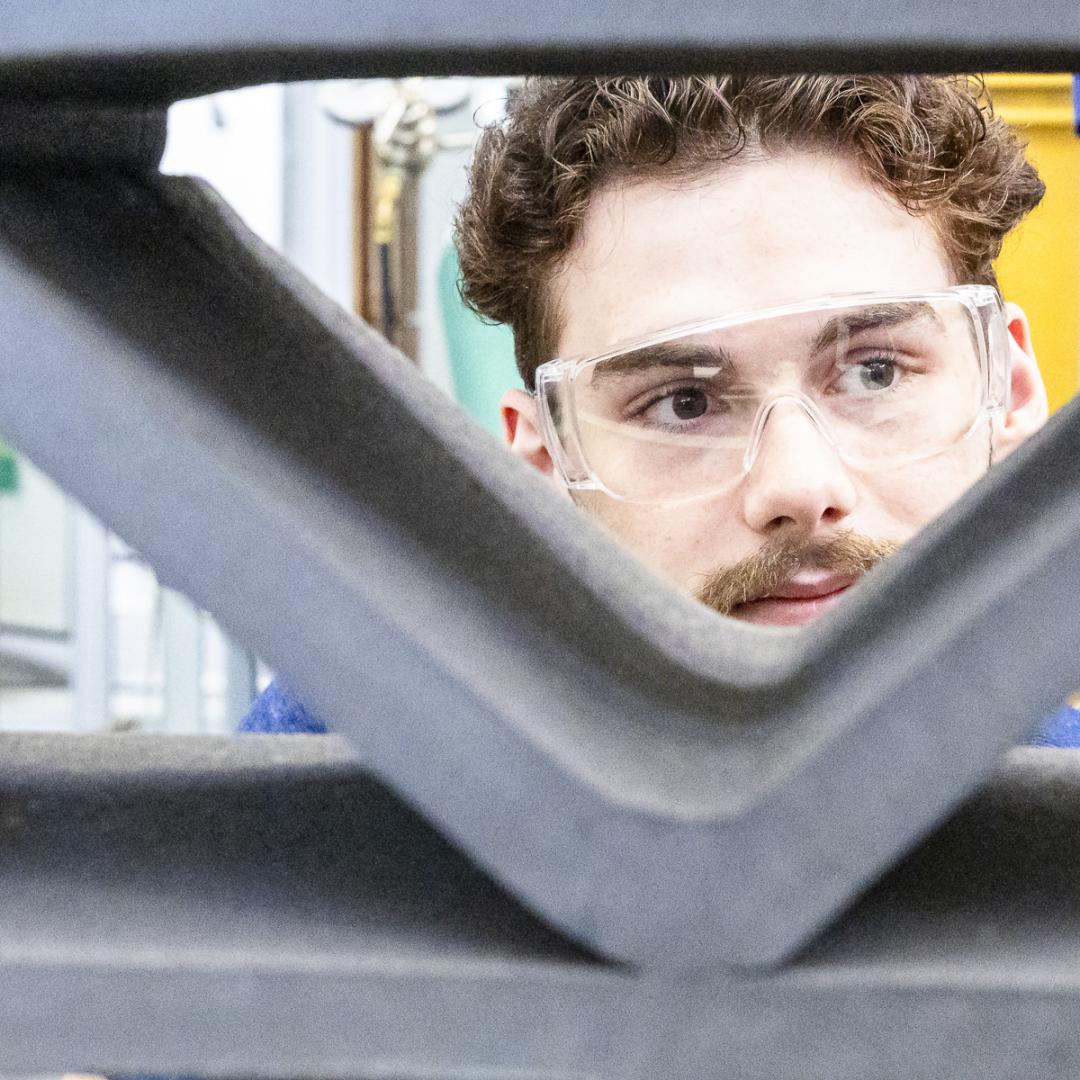Filter News
Area of Research
News Topics
- (-) Artificial Intelligence (45)
- (-) Energy Storage (28)
- (-) Molten Salt (1)
- 3-D Printing/Advanced Manufacturing (35)
- Advanced Reactors (8)
- Big Data (21)
- Bioenergy (49)
- Biology (57)
- Biomedical (28)
- Biotechnology (10)
- Buildings (17)
- Chemical Sciences (21)
- Clean Water (14)
- Climate Change (47)
- Composites (6)
- Computer Science (80)
- Coronavirus (17)
- Critical Materials (1)
- Cybersecurity (14)
- Decarbonization (43)
- Education (1)
- Emergency (2)
- Environment (100)
- Exascale Computing (24)
- Fossil Energy (4)
- Frontier (23)
- Fusion (28)
- Grid (23)
- High-Performance Computing (42)
- Hydropower (5)
- Isotopes (25)
- ITER (2)
- Machine Learning (21)
- Materials (40)
- Materials Science (42)
- Mathematics (5)
- Mercury (7)
- Microelectronics (2)
- Microscopy (20)
- Nanotechnology (16)
- National Security (33)
- Net Zero (8)
- Neutron Science (46)
- Nuclear Energy (52)
- Partnerships (14)
- Physics (26)
- Polymers (8)
- Quantum Computing (18)
- Quantum Science (28)
- Renewable Energy (1)
- Security (10)
- Simulation (29)
- Software (1)
- Space Exploration (12)
- Summit (30)
- Sustainable Energy (43)
- Transformational Challenge Reactor (3)
- Transportation (27)
Media Contacts

Research performed by a team, including scientists from ORNL and Argonne National Laboratory, has resulted in a Best Paper Award at the 19th IEEE International Conference on eScience.
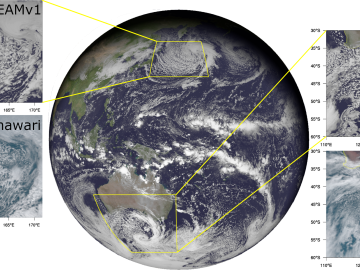
The world’s first exascale supercomputer will help scientists peer into the future of global climate change and open a window into weather patterns that could affect the world a generation from now.
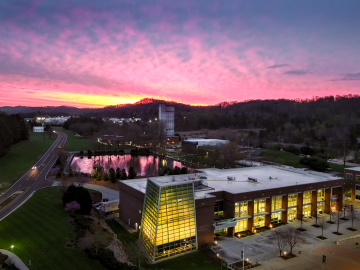
In fiscal year 2023 — Oct. 1–Sept. 30, 2023 — Oak Ridge National Laboratory was awarded more than $8 million in technology maturation funding through the Department of Energy’s Technology Commercialization Fund, or TCF.
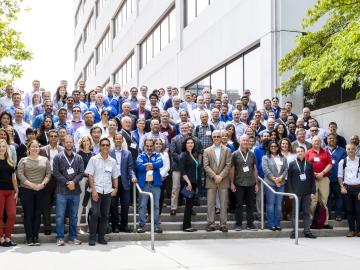
ORNL hosted its annual Smoky Mountains Computational Sciences and Engineering Conference in person for the first time since the COVID-19 pandemic.
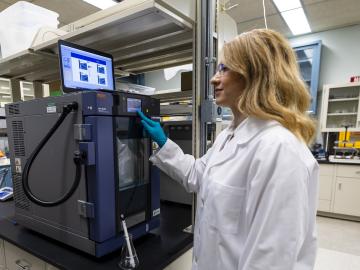
The common sounds in the background of daily life – like a refrigerator’s hum, an air conditioner’s whoosh and a heat pump’s buzz – often go unnoticed. These noises, however, are the heartbeat of a healthy building and integral for comfort and convenience.
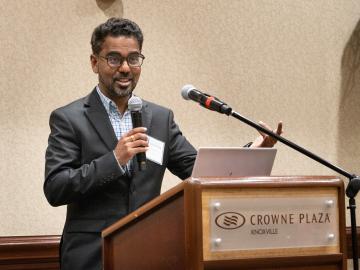
The Department of Energy’s Oak Ridge National Laboratory hosted its Smoky Mountains Computational Science and Engineering Conference for the first time in person since the COVID pandemic broke in 2020. The conference, which celebrated its 20th consecutive year, took place at the Crowne Plaza Hotel in downtown Knoxville, Tenn., in late August.
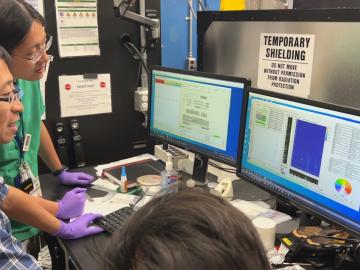
Neutron experiments can take days to complete, requiring researchers to work long shifts to monitor progress and make necessary adjustments. But thanks to advances in artificial intelligence and machine learning, experiments can now be done remotely and in half the time.
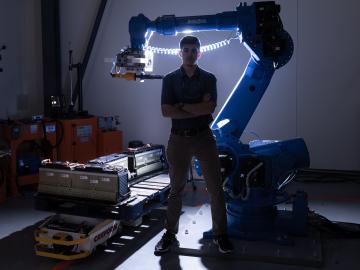
After being stabilized in an ambulance as he struggled to breathe, Jonathan Harter hit a low point. It was 2020, he was very sick with COVID-19, and his job as a lab technician at ORNL was ending along with his research funding.
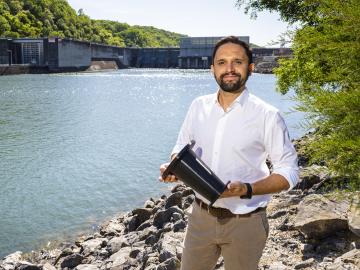
Mirko Musa spent his childhood zigzagging his bike along the Po River. The Po, Italy’s longest river, cuts through a lush valley of grain and vegetable fields, which look like a green and gold ocean spreading out from the river’s banks.
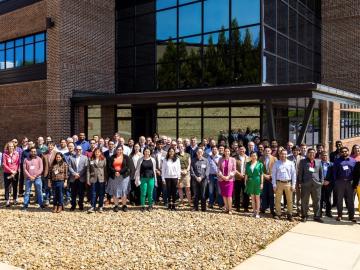
ORNL hosted its fourth Artificial Intelligence for Robust Engineering and Science, or AIRES, workshop from April 18-20. Over 100 attendees from government, academia and industry convened to identify research challenges and investment areas, carving the future of the discipline.



